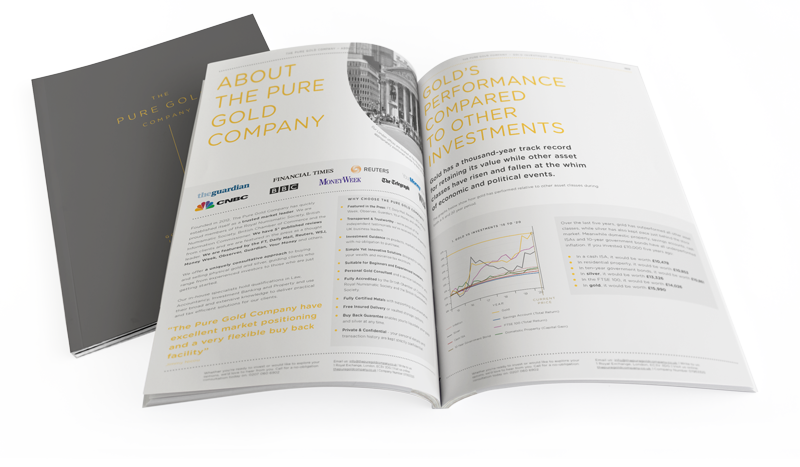The Bank of England last week pronounced eight of the largest high street banks in the UK as no longer “too big to fail”. Moreover, the public assessment indicates that even if these banks fail, they would be able to continue to operate to allow their customers to access their accounts and could foot the bill for their failure. It is the culmination of 14 years of post-Global Financial Crisis regulation, capitalisation rules, and stress tests. But are we all ready to pile our savings into banks again? Does this remove bank counterparty risk? Is it prudent to add bank deposits back into your investment basket?
Counterparty risk
Deposits, trades or investments are subject to counterparty risk, and this risk has been the subject of far greater scrutiny since the 2008 financial crisis. Counterparty risk is the risk that the other party in a trade or investment can’t fulfil its part of the contractual obligations. For example, a bank’s risk includes borrowers being unable to pay back their loan, while depositors risk the bank being unable to reimburse them any cash on deposit.
Trading and investments carry counterparty risk, where corporate or government bonds can be at risk of default. Meanwhile, more complicated swaps, put options or contracts for difference also have substantial counterparty risk.
“Too big to fail?”
The concept of a bank or institution being “too big to fail” means it is so deeply ingrained or enmeshed within a financial system that its failure would profoundly affect that economic system. The UK and US government bail-outs of large banking institutions during the global financial crisis are examples of these companies being “too big to fail” and requiring taxpayer funds to save them. However, many countries worldwide have worked to safeguard their financial system by ensuring their banks are not “too big to fail.”
The Bank of England’s declaration last week came with a few caveats. While most banks were now largely ‘safe’ and customers could be assured that they would not be in line to cover any failure, several banks still require improvement, including Lloyds, HSBC and Standard Chartered. They are all working to make improvements, and the Bank of England will review all the major banks again in 2024 to ensure they remain in a favourable position.
Should we all be putting our money in the bank again?
All investments carry some risk, and the recent declaration will go some way to alleviating the counterparty aspect of risk, which can protect your capital but not the value of your assets. Even though the interest rate is creeping up, it remains very low historically, and the interest available on bank savings remains well below inflation. With the expectation that inflation will peak at around 10% by the end of this year, the value of any bank savings will likely be eroded (quite substantially) over time.
In addition, the “too big to fail” test is designed to protect bank customers, putting shareholders and investors on the hook for any bank failure ahead of taxpayers. This means investing in bank shares continues to carry a higher counterparty risk even as bank customers can breathe more easily.
Investment unknown unknowns
Finally, all investment decisions should be approached with a healthy dose of scepticism. Despite the assurances from the Bank of England that UK banking institutions are no longer “too big to fail”, if the global financial crisis and the pandemic have taught us anything, it is that unprecedented events are more common than one might anticipate. At the risk of sounding like Donald Rumsfeld, there are plenty of ‘unknown unknowns’ that just can’t be anticipated. If the Bank of England is satisfied that UK banks would survive something similar to the global financial crisis, what if the next crisis is different?
Asking a lot of questions
Investment decisions need to include both scepticism and an understanding of risk. Just because the Bank of England has declared UK banks no longer “too big to fail” doesn’t mean there are no more risks to using them as investment vehicles. The Bank of England has been criticised for contributing to the cost of living crisis by being profligate in its quantitative easing policy. However, it is not infallible, and its policies can be scrutinised in the rear-view mirror of history.
Looking Into Gold Investment?
Book a FREE consultation with our expert brokers at The Pure Gold Company.

Meanwhile, the UK government is interested in maintaining stability, as any whiff of fear can lead to a snowball effect or even a run on the banks which could impact their ability to provide services effectively.
Alternatives to banks
The cost-of-living crisis will have a long-term detrimental effect on the economy, and inflation is corrosive on cash assets. This leaves potential investors with fewer options for ensuring their assets retain value. The outlook for the UK economy is worsening. GDP fell for the second month running in April as recession fears grew. The global crisis is impacting stock markets worldwide as they repeatedly slide in reaction to gloomy outlooks across the world’s major economies.
Crypto Currency risks
Meanwhile, riskier assets like cryptocurrencies have been battered as investors look for safe-haven investments. For example, in 2022, the value of Bitcoin, the world’s most popular cryptocurrency, fell by 52.8%, from £35K in January 2022 to under £17K by late June 2022. The fall has been even more dramatic for other major cryptocurrencies like Ethereum, which dropped in value by 67% over the same period.
Gold price performance
Against this backdrop, gold has largely been on the rise since the start of the year, with some volatility but still gaining over 11% in the period. Historically gold has been seen as an inflation hedge, which is certainly true over the long term. As a commodity, it rises alongside the cost of other goods, maintaining its value even when inflation erodes the value of cash.
What can influence gold prices?
Like interest rates, though, in practice, this link is not indelible. There are circumstances where other factors influence gold more than inflation, including market sentiment, monetary policy, currency fluctuations, geopolitical issues, supply and demand and price


